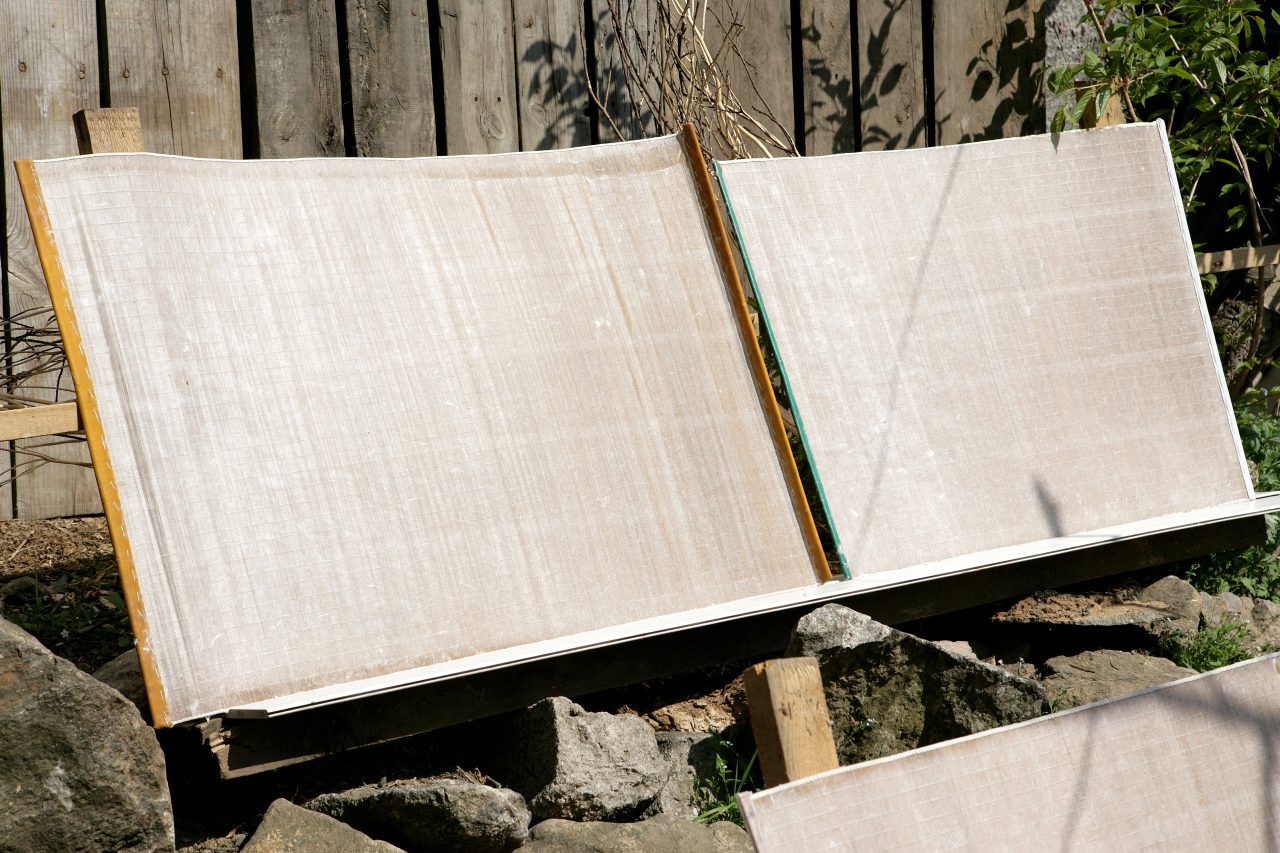Application filed to have ‘hanji’ preserved by UNESCO
By Choi Si-youngPublished : April 1, 2024 - 15:07

South Korea has made a bid to add “hanji,” or traditional Korean mulberry paper, to UNESCO’s Intangible Cultural Heritage List.
“Traditional knowledge and skills associated with the production of hanji and related cultural practices in the Republic of Korea will undergo an evaluation procedure,” the Cultural Heritage Administration said in a statement Monday, referring to the submission the previous day to the UN culture body. The Republic of Korea is the formal name of South Korea.
According to the CHA, hanji was used for a thousand years, with “meticulous handcrafting skills” of hanji masters, passed down through generations, being central in the production. The process, it said, highlights a joint endeavor involving not only such exceptional skills, but a community system just as valuable.
The system known as pumasi -- or a labor-sharing practice where every farmworker united for common but demanding work -- was instrumental because harvesting and processing trees required sustainable collaboration.
Hanji is now used in a number of ways, ranging “from eco-friendly building materials to household products and artistic activities,” the CHA added, describing the latest bid as timely.
A CHA official noted the agency does not believe the application came late. China and Japan had their traditional papers recognized by UNESCO in 2009 and 2014, respectively, a precedent some say is evidence of the CHA difficulties in prioritization.
“We settle on UNESCO priorities after deliberations by a committee tasked with that job,” the official said of one of the nine subcommittees overseen by the National Commission for the Protection of Cultural Properties. The Subcommittee on World Heritage, comprising civilian experts, recommends which should make the UNESCO list, the official added, saying their past work had served the country well.
“We have seen 22 nominations turn into UNESCO inscriptions since 2001,” the official said, pointing out such feat has made South Korea a country UNESCO considers needing nomination review every two years rather than one year, to give other countries more chance to see their heritage inscribed.
In 2022, “talchum” or a performing art that encompasses dance, music and theater, was recognized and this year UNESCO will decide whether to include on the list “jang making” or “knowledge, beliefs and practices of fermentation pastes and sauces.” The decision on hanji will be released in December 2026.





![[KH Explains] No more 'Michael' at Kakao Games](http://res.heraldm.com/phpwas/restmb_idxmake.php?idx=644&simg=/content/image/2024/04/28/20240428050183_0.jpg&u=20240428180321)




![[Grace Kao] Hybe vs. Ador: Inspiration, imitation and plagiarism](http://res.heraldm.com/phpwas/restmb_idxmake.php?idx=644&simg=/content/image/2024/04/28/20240428050220_0.jpg&u=)









